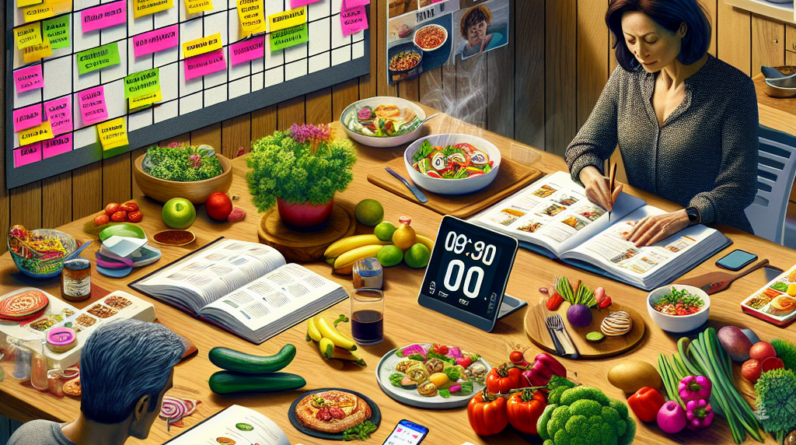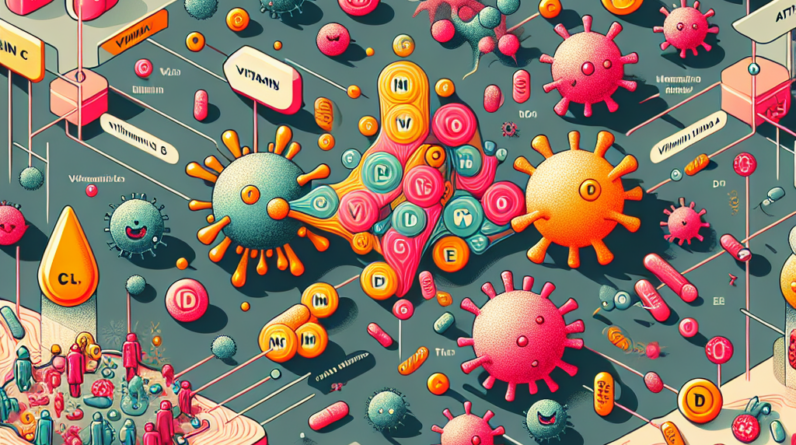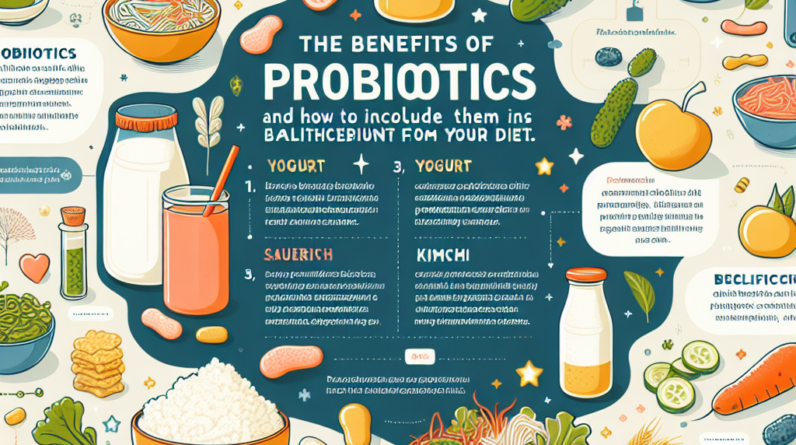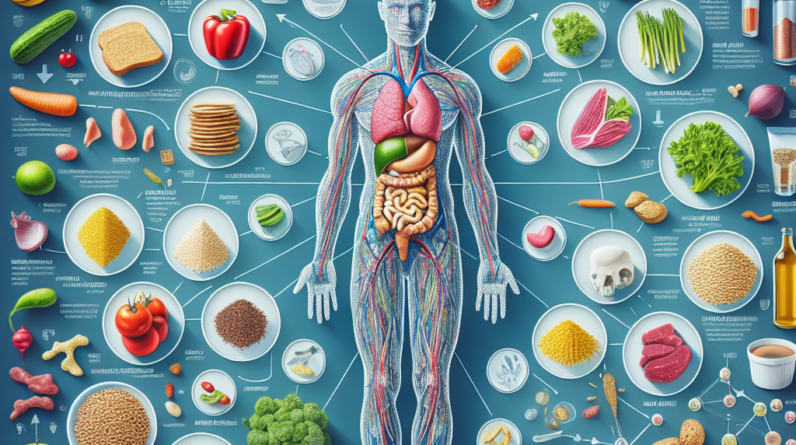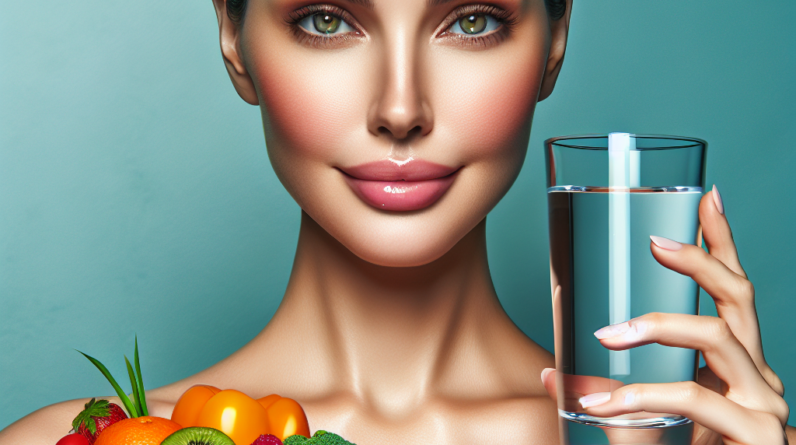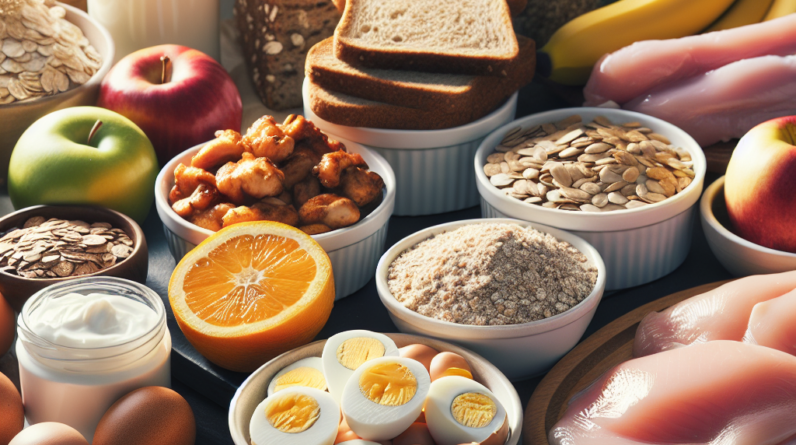
1. Carbohydrates: The Fuel for Your Workout
What Are Carbs and Why Do You Need Them?
Carbohydrates are pretty much the body’s main source of energy, especially when you’re sweating it out in the gym. Think of carbs like the gas for your car – without it, you won’t go anywhere! They’re crucial for your pre-workout meal because they fuel your muscles and keep your energy levels up while working out.
Get a Huge Discount and Bonus! Try for 90 Days Risk Free
The body breaks down carbs into glucose, which is then used by your muscles during exercise. For a workout, you want to have them in your system, so a good rule of thumb is to load up on them a couple of hours before you hit the gym. I usually go for whole grains, fruits, and veggies to get my carbs in.
Before a tough workout, I often eat oatmeal with some fruit or a whole wheat wrap with a lean protein source. This keeps me energized and ready to crush those weights!
Which Carbs Should You Choose?
Not all carbs are created equal, my friend! You want to focus on complex carbohydrates – those that have a low glycemic index. Foods like brown rice, quinoa, and sweet potatoes are great choices. They digest more slowly, providing steady energy. I love tossing some roasted sweet potatoes in my pre-workout meal; they’re delicious and energizing!
Simple carbs, like sugary snacks, can offer a quick burst of energy, but they might leave you crashin’ and burnin’ mid-workout. So I try to steer clear of candy and desserts before hitting the gym. Instead, I snack on fruits like bananas for a quick energy boost right before I start.
Another great option is sports drinks or energy gels if you’re doing endurance training and need that quick hit of fuel. Just remember to test out what works for you, ’cause everyone’s system is different!
Timing is Everything
The timing of your carb intake is super important, too. I usually aim to eat a solid meal about 2-3 hours before my workout. This allows my body to digest the food properly and get those energy levels up.
If you’re in a rush and can’t eat a big meal, grab a snack about 30-60 minutes before your workout. A banana or some rice cakes with peanut butter can work wonders to keep you fueled without the heavy feeling.
Remember, finding the right balance for your body and routine is key. Experiment with different foods and timing until you find what gets you feeling your best during those workouts!
Get a Huge Discount and Bonus! Try for 90 Days Risk Free
2. Proteins: The Building Blocks
Why Protein Matters
When I think of protein, I think of recovery. During workouts, your muscles undergo stress, and they need those building blocks to repair themselves afterward. That’s where protein swoops in to save the day! It helps not only with muscle recovery but also with muscle growth, which is essential if you’re looking to build strength.
It’s important to have a good dose of protein both before and after your workouts. If I’m looking to bulk up a bit, I’ll include more protein sources in my diet, aiming for lean meats, dairy, or legumes.
For pre-workout snacks, think of a Greek yogurt or a scoop of protein powder added to a smoothie. It helps set you up for a great session and protects your muscles from too much wear and tear.
Post-Workout Protein Sources
After your workout, your body is crying out for some nutrients, especially protein! I never skip on my post-workout meal, and I try to eat something high in protein within 30 minutes after I finish. This minimizes muscle soreness and aids recovery.
Need a Serious Energy BOOST? Huge Discount Try for 90 Days Risk Free
Some of my go-to options include grilled chicken, fish, or a big ol’ protein shake. Mix that protein powder with some fruits and spinach, and boom – you’ve got yourself a delicious and nutritious smoothie!
For those days when I just want a tasty meal, I’ll whip up a veggie omelet or a quinoa salad with beans. It’s filling and perfect to recharge the batteries after a workout!
Pre- and Post-Workout Recipes
Getting creative in the kitchen can make pre- and post-workout meals exciting. One of my favorite pre-workout snacks is a banana with almond butter. Super easy to prepare, and it gives me that perfect energy kick.
For post-workout, I love making a quinoa and black bean bowl topped with avocado. It’s not only packed with protein but also super satisfying. You can throw in some spices and hot sauce for an extra kick, and you’ve got a winner!
Experiment with different recipes that work for you, and don’t hesitate to switch things up. You’ll find your favorites that’ll make your workouts more enjoyable!
3. Hydration: Don’t Forget the Water
Why Staying Hydrated is Key
To me, hydration is just as important as nutrition when it comes to working out. I can’t stress enough how important it is to drink enough water! Our bodies are made up of about 60% water, so staying hydrated helps maintain all physiological processes, including temperature regulation and nutrient transportation.
When I’m hitting the gym, if I forget to drink water, I can definitely feel it. I become fatigued way faster, and I knooow that’s no fun! It’s crucial to drink enough fluids before, during, and after your workout to avoid dehydration.
I usually try to sip on water throughout the day, but I’ll make sure to drink extra before and during my workout. A good rule of thumb is about 16-20 ounces of water at least an hour before hitting the weights.
Electrolytes: The Unsung Heroes
Electrolytes are an essential part of hydration, especially during longer or high-intensity workouts. When I sweat, I lose not just water but also electrolytes like sodium, potassium, and magnesium. Losing those can lead to cramps and fatigue, making my workout much tougher than it needs to be.
To replenish electrolytes, I often drink coconut water or a sports beverage during longer training sessions. These options provide not only hydration but also those essential minerals to keep my body functioning at its best.
Just be cautious with sports drinks that are high in sugar; I like to check the labels to find lower-sugar options. Staying balanced with hydration and electrolytes can really enhance performance!
Creative Ways to Stay Hydrated
If plain water isn’t your thing, don’t fret! There are plenty of ways to spice up hydration. I like to add lemon, mint, or cucumber to my water for a refreshing twist. It makes drinking water much more enjoyable!
Good Health Solution is Easier Than Most People Think!
Take a Look for Yourself!
Eating fruits and veggies with high water content, like watermelon or cucumber, can also help keep you hydrated while you munch. I often slice up some watermelon for a post-workout snack; it’s super refreshing and hydrating.
If you’re into smoothies, tossing in some greens and whole fruits in there will not only hydrate you but also pack in nutrients. The key is finding what works for you to stay hydrated and refreshed!
4. Healthy Fats: The Unsung Heroes of Nutrition
The Importance of Healthy Fats
Now, fats often get a bad rap, but let’s clear it up: not all fats are created equal! Healthy fats, like avocados, nuts, and olive oil, are important for maintaining heart health and providing energy. These fats help keep us full longer and support cell health.
Incorporating healthy fats into your diet can also help your body absorb fat-soluble vitamins like A, D, E, and K. I love adding a tablespoon of peanut butter to my smoothies for that healthy fat boost. It’s creamy, delicious, and oh-so-good for me!
But timing matters! I generally keep my fat intake lower before workouts because fats take longer to digest. However, I’ll enjoy them after a workout in my meals to give my body what it needs to recover.
Best Sources of Healthy Fats
For those healthy fat sources, I gotta give a shoutout to avocados! They’re not just tasty but also loaded with nutrients. I spread avocado on whole grain toast or toss it into my salads. It adds a creamy texture and provides essential fats to my meals.
Another favorite is nuts. Almonds, walnuts, and pistachios are perfect for snacking or tossing in salads. They’re packed with energy and also help curb my cravings. Just be careful, as they are calorie-dense, so I usually keep my portions in check.
Lastly, I enjoy cooking with olive oil because of its heart-healthy properties. Drizzled on veggies or used in homemade dressings, it’s an easy way to add flavor while boosting my nutrient intake.
Incorporating Healthy Fats into Your Meals
Integrating healthy fats into your meals isn’t complicated. For breakfast, I often add some chia seeds to my overnight oats for that boost in omega-3s. It’s filling and helps keep me energized.
At lunch, I sprinkle some nuts over my salad or enjoy a small handful as a side snack. It’s a great way to add crunch and flavor while packing in those healthy fats.
For dinner, I like drizzle olive oil over roasted veggies or toss in some olives to my pasta. It’s simple, but those little additions can elevate your meals while keeping them nutritious!
5. Timing Your Meals Around Workouts
The Pre-Workout Meal Timing
Planning your meals around your workouts can make a huge difference in performance and recovery. Personally, I’ve found that eating a balanced meal 2-3 hours before my workout gives me the energy I need without that heavy feeling. I often include a combination of carbs and proteins; it’s what keeps me going!
However, if I’m short on time, I’ll opt for a smaller snack about 30-60 minutes prior. A smooth banana or an energy bar really does the trick, providing just enough fuel without dragging me down.
Find what works best for your schedule and routine, as everyone is different when it comes to timing meals. Experiment until you find your sweet spot!
Timing Your Post-Workout Meal
Right after a workout, I make sure to feed my body within 30 minutes. This is crucial for muscle recovery! I look for a meal that has both protein and carbs. A shake with protein powder and a banana is quick and convenient when I’m on the go.
If I’m home and can whip something up, I might go for grilled chicken with veggies or a hearty quinoa salad. The key factor is getting those nutrients back in my body as soon as possible to speed up recovery.
Listening to your body and knowing when to refuel is an essential part of workout success. Believe me, your muscles will thank you!
Finding Your Meal Prep Rhythm
Meal prepping has changed my game when it comes to workout nutrition. I dedicate a few hours over the weekend to prepare my meals for the week. This way, I always have healthy options ready to go by the time workout day rolls around. It’s all about convenience!
When planning, I ensure I have a balance of proteins, carbs, and healthy fats in my meals. I usually label containers and take them to work or store them in the fridge. This makes it easy to grab and go!
Don’t shy away from experimenting with different meal ideas as you get into a rhythm. Mixing things up keeps meal prep fun and exciting. Plus, it helps me stay committed to my fitness journey!
FAQ
1. What should I eat before a workout?
Stick with complex carbs and a small amount of protein. Options like oatmeal with fruit or a whole grain wrap with lean protein will fuel your workout.
2. How soon before a workout should I eat?
A solid meal is best consumed about 2-3 hours prior, while lighter snacks can be eaten 30-60 minutes before hitting the gym.
3. Why is post-workout nutrition important?
Post-workout nutrition helps with muscle recovery and growth. Consuming protein and carbs shortly after exercising can speed up this process.
4. How can I stay hydrated during workouts?
Drink water throughout the day and aim for about 16-20 ounces before your workout. Bring a water bottle to sip on during your session.
5. Are healthy fats good for working out?
Absolutely! Healthy fats support energy levels and keep you satiated. Just remember to consume them in moderation around workout times.



